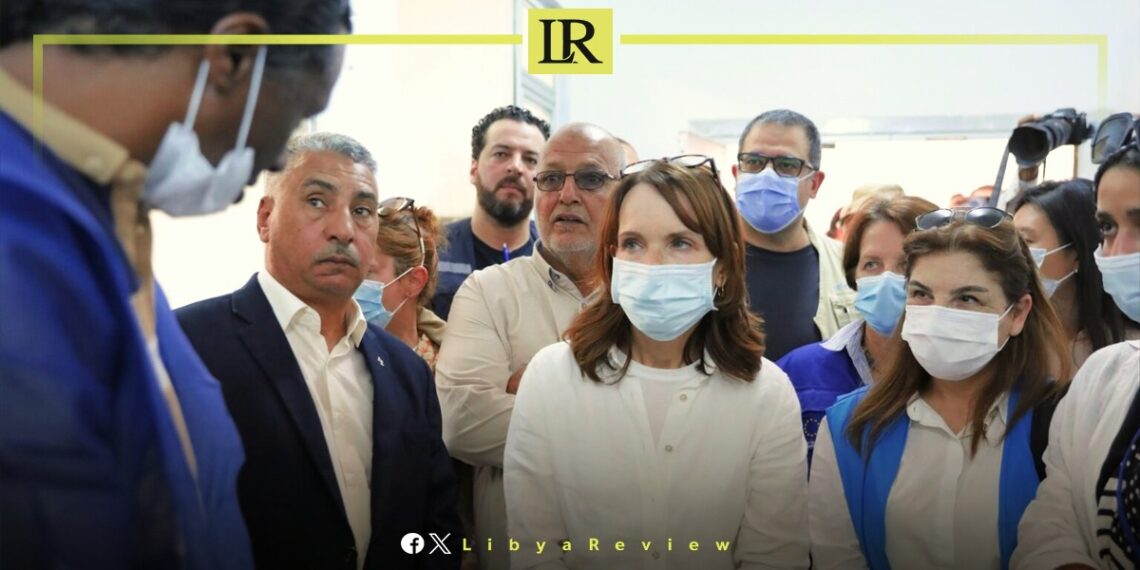On Sunday, the Deputy Special Representative of the Secretary-General and Humanitarian Coordinator in Libya, Georgette Gagnon, highlighted the urgent need for increased support to address the escalating humanitarian needs of Sudanese refugees in Kufra.
This support is crucial to provide essential services amid the rising challenges faced by these refugees.
This call for action came after Gagnon’s visit to Kufra, accompanied by heads of various UN agencies, including the World Health Organization (WHO), UNICEF, the United Nations High Commissioner for Refugees (UNHCR), the World Food Programme (WFP), and the International Organization for Migration (IOM).
During the visit, they engaged with local leaders, Sudanese refugees, and UN-supported teams delivering humanitarian assistance in collaboration with local authorities.
In 2024, the United Nations launched the Humanitarian Response Plan for Sudanese refugees in Libya, coordinated by UNHCR. The plan aims to support efforts led by authorities and communities, ensuring shared responsibility with the Libyan state, local authorities, and the Libyan population.
The city of Kufra, located in southeastern Libya, has become a critical refuge for Sudanese fleeing conflict and instability in their home country. The ongoing conflict in Sudan has led to a significant influx of refugees seeking safety and basic necessities in neighboring countries, including Libya. This surge has placed immense pressure on local resources and infrastructure in Kufra, highlighting the urgent need for international support.
Libya, already grappling with its internal challenges, has been accommodating a large number of refugees and migrants from various countries.
The situation in Kufra is particularly dire, with refugees living in overcrowded conditions and lacking access to basic services such as healthcare, education, and adequate shelter. UN agencies, in collaboration with local authorities and organizations, have been working tirelessly to provide life-saving assistance and improve living conditions for the refugees.


